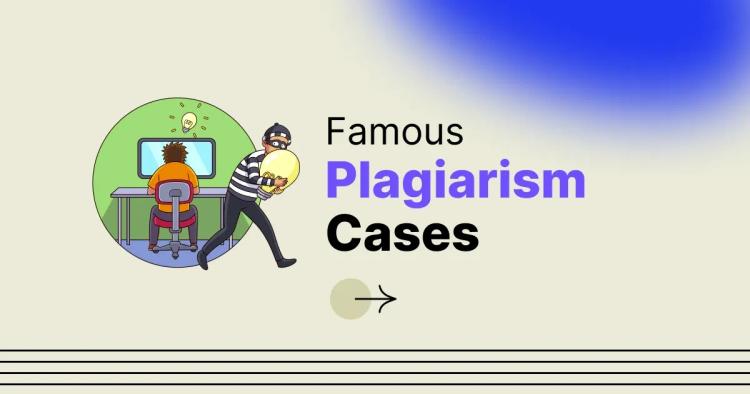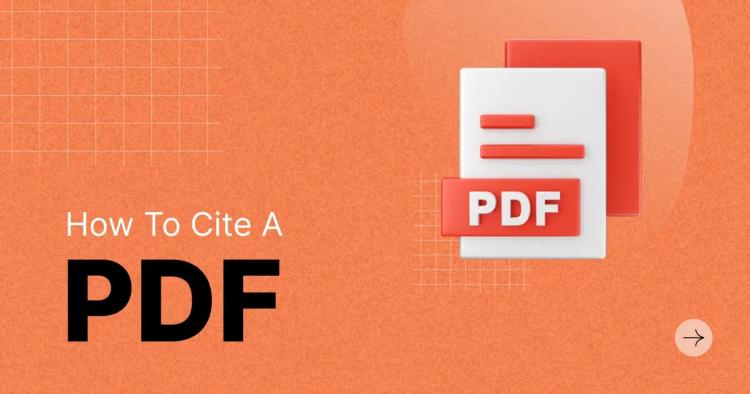In the realm of politics, speeches hold a unique power to sway opinions, inspire change, and shape the course of nations. An authentic political speech reflects the speaker's ideals, beliefs, and vision.
Yet, the unfortunate reality is that the noble art of speechwriting is not always immune to the shadows of plagiarism. The act of lifting words, ideas, and phrases from others without proper attribution can taint the purity of political discourse.
In this comprehensive guide, we delve deep into the art of identifying plagiarism in political speeches, understanding its implications, and exploring how modern technology, like the Copychecker Plagiarism Checker, can aid in maintaining the integrity of public addresses.

Understanding the Importance of Authentic Political Speeches
Political speeches have the potential to transcend time, becoming landmarks in history. Think of Martin Luther King Jr.'s "I Have a Dream" speech or Winston Churchill's rallying cry during World War II.
These speeches are etched into the collective memory of societies, representing pivotal moments of courage and conviction. When a political speech is marred by plagiarism, its authenticity is compromised, eroding the very essence of trust that binds citizens to their leaders.
ᴀᴅᴠᴇʀᴛɪsᴇᴍᴇɴᴛThe Impact of Plagiarism on Political Discourse
Plagiarism isn't just an academic concern; it's a breach of trust that corrodes the credibility of politicians. When a leader stands before the public, their words should reflect their personal experiences, convictions, and aspirations.
Plagiarism diminishes the unique voice of the speaker, creating a facade of sincerity. It not only undermines the speaker's integrity but also questions the authenticity of their promises and commitments.
Analyzing Language and Style

Familiarity with the Speaker's Unique Voice
A politician's speech is an extension of their identity. Every individual has a distinct way of expressing themselves – a certain rhythm, vocabulary, and tone that sets them apart. Deviations from this unique voice could signal potential plagiarism.
Analyzing a speaker's past speeches, interviews, and written works provides valuable insights into their customary linguistic patterns.
Identifying Sudden Shifts in Tone and Vocabulary
Plagiarized segments often disrupt the natural flow of a speech. Sudden shifts in tone, vocabulary, or style can be red flags.
A sudden transition from colloquial language to formal diction, or the abrupt appearance of obscure terminology, might indicate borrowed content. Such inconsistencies can disrupt the emotional connection a speech aims to establish with the audience.
Recognizing Overly Complex Language for the Speaker
Each politician has their own comfort zone when it comes to language complexity. Some are known for their straightforward communication, while others employ more intricate vocabulary.
If a speech is peppered with overly complex language that doesn't align with the speaker's historical communication style, it's worth investigating further.
Contextual Inconsistencies
Cross-Referencing Speeches Across Different Settings
Political leaders often address diverse audiences in various contexts. Comparing a speech delivered at a town hall meeting with one given at an international summit can unveil inconsistencies. Plagiarized content might lack the nuance required to address specific local issues or international concerns.
Detecting Incongruities with Previous Statements
Public figures are accountable for their previous statements. A major discrepancy between current speech and past declarations could indicate plagiarism. Beyond that, it might reveal a shift in stance or values, raising questions about the sincerity of the speech.
Analyzing the Alignment with Political Ideology
A politician's speeches should resonate with their political ideology. Plagiarism that contradicts core beliefs is not only a plagiarism issue but a strategic error. Such misalignments could trigger doubts about the speaker's authenticity and commitment to their ideals.
ᴀᴅᴠᴇʀᴛɪsᴇᴍᴇɴᴛFact-Checking and Data Usage

Verifying Statistics and Data Sources
Data-driven speeches often involve referencing statistics, studies, and expert opinions. Fact-checking these references is essential. Plagiarized speeches might contain fabricated statistics or cite non-existent sources, leading to a distortion of truth.
Scrutinizing Direct Quotes and Citations
Quoting authoritative figures or renowned sources can enhance a speech's credibility. However, attributing quotes to nonexistent individuals or misrepresenting their statements can be indicative of plagiarism.
Investigating Misrepresentation of Research Findings
Incorporating research findings lends weight to a political argument. But when speeches present distorted or exaggerated interpretations of research, it's crucial to question the legitimacy of the content.
Comparing to Historical Speeches
Drawing Parallels with Iconic Political Addresses
The great speeches of history remain etched in the collective memory. Drawing parallels between contemporary speeches and these iconic addresses can reveal borrowed themes, phrases, or rhetorical devices.
Spotting Imitation or Direct Borrowing from Historical Figures
Plagiarism isn't limited to contemporaries. Some politicians might be tempted to borrow from historical giants. Spotting direct lifts from famous speeches can unveil a lack of originality and integrity.
Emphasizing the Need for Originality in Modern Speeches
Learning from history is essential, but modern political leaders must offer fresh perspectives. Relying heavily on historical content compromises the authenticity of their message.
Technology and Plagiarism Detection

Role of Modern Tools in Uncovering Plagiarism
Technology, once a facilitator of plagiarism, now offers tools to combat it. Modern plagiarism detection software is a valuable asset in the quest for authentic political discourse.
Introducing Copychecker Plagiarism Checker
Copychecker Plagiarism Checker is a cutting-edge tool designed to analyze speeches for potential plagiarism. Its algorithms compare text against a vast database, flagging similarities that might indicate unattributed content.
ᴀᴅᴠᴇʀᴛɪsᴇᴍᴇɴᴛHow Copychecker Enhances Speech Analysis
Copychecker doesn't replace human analysis; it complements it. By quickly identifying potential matches across a wide range of sources, it accelerates the detection process, allowing analysts to focus on contextual analysis.
Using Copychecker Plagiarism Checker
Exploring the Features and Benefits
Copychecker offers a user-friendly interface, making it accessible to both speechwriters and analysts. Its comprehensive database covers academic papers, speeches, articles, and more.
Step-by-Step Guide to Analyzing Political Speeches
Upload or Paste Text: Input the speech text into Copychecker's interface.
Initiate Analysis: Click the "Analyze" button to commence the comparison process.
Review Similarities: Copychecker highlights potential matches. Review each instance to determine if it's legitimate or requires further investigation.
Contextual Evaluation: Context matters. Assess whether identified similarities are mere coincidences or indications of plagiarism.
Understanding the Accuracy and Limitations of the Tool
Copychecker's algorithms rely on pattern recognition. While it's highly accurate in detecting textual similarities, it's crucial to consider context, as sometimes legitimate matches might arise due to common phrases or idioms.
Ethical Considerations in Speechwriting

Balancing Inspiration and Originality
Political speechwriting is an art that involves finding inspiration from various sources. However, there's a fine line between inspiration and plagiarism. Speechwriters must navigate this balance with integrity.
Examining the Ethical Boundaries of Political Speech Creation
Speechwriters shoulder the responsibility of crafting words that reflect a politician's vision. Ethical speech creation involves drawing from a diverse pool of influences while ensuring due credit is given.
Impact of Plagiarism on Public Trust and Credibility
The fallout from a plagiarism scandal isn't limited to the political realm. It erodes public trust and casts doubts on the credibility of leaders. The impact extends beyond the speech to the broader reputation of the politician.
Real-Life Case Studies
Recent Instances of Plagiarism in Political Speeches
Examining real-life examples of plagiarism in political speeches provides valuable lessons. Recent incidents demonstrate that even high-profile figures are susceptible to the temptation of borrowing.
Deconstructing the Effects on Public Perception
Plagiarism scandals reverberate through media and public discourse. Analyzing how these events shape public perception sheds light on the gravity of maintaining originality.
Lessons Learned from Notable Plagiarism Scandals
Each scandal offers lessons in ethical speech creation, crisis management, and the importance of transparency. Acknowledging mistakes and taking corrective action is essential for rebuilding trust.
ᴀᴅᴠᴇʀᴛɪsᴇᴍᴇɴᴛPreventing and Addressing Plagiarism

Education and Training for Speechwriters and Politicians
Education is key to prevention. Speechwriters and politicians should receive training on the nuances of plagiarism, its consequences, and the ethical boundaries of content creation.
Strategies for Authentic Speech Creation
Encourage creativity. Politicians should strive to infuse their speeches with personal anecdotes, experiences, and insights, creating a tapestry of authenticity that resonates with their audience.
Handling Plagiarism Allegations and Their Ramifications
Transparency is paramount. Addressing allegations promptly and honestly can mitigate damage. The consequences should reflect the seriousness of the offense, while allowing room for redemption.
FAQs
Does Plagiarism Apply to Speech?
Yes, plagiarism applies to speech, just as it does to written content. When someone presents another person's words, ideas, or concepts as their own without proper attribution, it constitutes plagiarism in a speech context.
Three Ways Plagiarism Can Occur in a Speech Presentation
Direct Quotes Without Attribution: Presenting someone else's words verbatim without indicating the original source.
Paraphrasing Without Credit: Rewriting someone else's ideas in different words without acknowledging the source.
Borrowing Concepts and Frameworks: Using another person's unique way of structuring an argument or presenting ideas without giving credit.
Can Plagiarism Impact a Politician's Reputation?
Absolutely, plagiarism can significantly impact a politician's reputation. When a leader is caught plagiarizing, it erodes trust and raises questions about their authenticity, honesty, and credibility.
Such incidents can damage their relationship with the public and tarnish their image as a trustworthy figure.
Why is Context Important in Identifying Plagiarism in Speeches?
Context is crucial because it helps differentiate between intentional plagiarism and coincidental similarities.
A thorough analysis of the context allows us to determine whether similarities are a result of deliberate copying or the natural use of common phrases, idioms, or ideas.
How Can Modern Technology Aid in Detecting Plagiarism?
Modern technology, like the Copychecker Plagiarism Checker, uses algorithms to compare text against a vast database of sources, identifying potential matches that might indicate plagiarism.
While it enhances the detection process, human judgment and contextual analysis remain essential to accurately assess the authenticity of a speech.
ᴀᴅᴠᴇʀᴛɪsᴇᴍᴇɴᴛConclusion
Political speeches are the threads that weave the fabric of societies. They carry the weight of history and the hopes of generations.
Plagiarism, however, threatens to unravel this fabric, erasing the authenticity and trust that should underpin political discourse. As citizens, it's our duty to demand integrity and originality from our leaders.
By embracing technological aids like Copychecker Plagiarism Checker and upholding ethical standards, we can ensure that the speeches that shape our world are woven from the genuine threads of inspiration, dedication, and truth.







